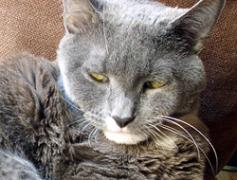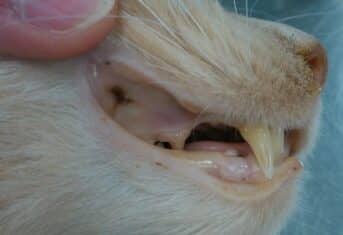Why Do People Treat Their Pets for Cancer?

Why Do People Treat Their Pets for Cancer?
People I meet socially are often surprised when I tell them I treat pets with cancer. The first level of surprise occurs because many non-pet lovers don’t know pets get cancer, so of course they are doubly surprised to meet some who treats it. For me, cocktail party conversation frequently centers around the question, “Why do people treat their pets for cancer?”
Since many pets are considered members of the family, pet owners want the same level of medical care for their pet as they do for themselves. At specialty hospitals like The Animal Medical Center, this high level of medical care includes surgery, chemotherapy and radiation therapy.
I am often asked if a dog is too old to get treatment. My patient population and that of most oncologists is elderly. To be trite: “Age is not a disease.” But some older pets may have diseases which complicate cancer therapy or have such a delicately balanced treatment regime that cancer treatment is not a good idea. Other older pets sail through cancer treatments, like Spenser.
Cuddles the Cat is a chemotherapy patient. Notice the short stumpy whiskers on the right side of her face, which are the only outward sign of chemotherapy treatment she has.
Side effects — nausea, vomiting, hair loss — become another worry for pet owners based on their experiences with human family members. Veterinary cancer treatment goals are different. We strive to improve the quantity of life as well as the quality of life for our dog and cat patients. We usually can achieve this goal and if we can’t, we understand if the owners choose to discontinue therapy.
Since I am an oncologist, I bet you think all the pets I see get treatment for their tumors. Not so fast. The decision to treat cancer in a pet belongs to the pet’s family, not me. My job is to provide information about prognosis, complications and expectations. The family has to weigh the tough stuff and this decision is never taken lightly. I had one lovely, but unlucky cat owner client. Both her cats developed the same uncommon tumor. She chose to treat one, but not the other. Why? The two cats had diametrically opposed personalities. We treated the gentle, cooperative cat, but much to my relief, she perceived treatment of her ultra-cranky cat would be stressful for him, a tribulation for her and dangerous for the oncology staff.
If you are worried your pet might have cancer, click here to find the warning signs of cancer in pets.
If your pet is showing any of these signs, see your veterinarian right away.
________________________________________________________
This may also be found in the “Tales from the Pet Clinic” blog on WebMD.com.
For over a century, The Animal Medical Center has been a national leader in animal health care, known for its expertise, innovation and success in providing routine, specialty and emergency medical care for companion animals. Thanks in part to the enduring generosity of donors, The AMC is also known for its outstanding teaching, research and compassionate community funds. Please help us to continue these efforts. Send your contribution to: The Animal Medical Center, 510 East 62nd Street, New York, NY 10065. For more information, visit www.amcny.org. To make an appointment, please call 212.838.7053.


































